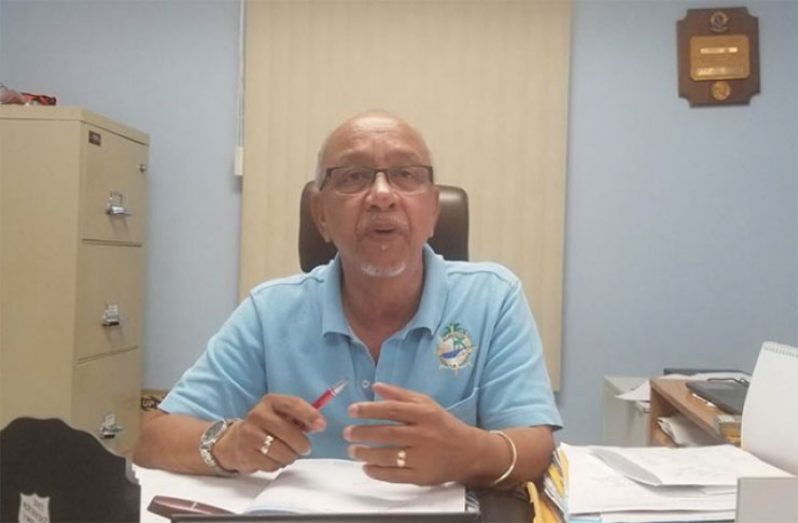– Guyana’s honorary consul tells illegal Guyanese in Antigua
GUYANESE living on the twin island of Antigua and Barbuda are being urged to take full advantage of that government’s amnesty granted to persons who are residing on the land illegally or be prepared to be deported.
Guyana’s Honorary Consul to that country, Robert Reis, in a recent interview said while he does not believe there are many Guyanese living in Antigua and Barbuda illegally, those who are and do not take advantage of the amnesty ought to be deported.
“Those who are still illegal deserve to be deported because they have been given every opportunity and every assistance,” Reis explained. He disclosed that there are between 10,000 and 15,000 Guyanese living in Antigua and quite a significant amount of that total have become citizens of that country.
“If they are illegal they are stupid,” the Honorary Consul stated while noting that there were two amnesties; one late 2014 into early 2015 and the second one that started in January 2018.
Additionally, he disclosed that last year amnesty was granted to persons who were working illegally in Antigua. He said a lot of Guyanese, as far as he is aware, would have taken advantage of the amnesty as many of them approached him for assistance.
Reis said he met with Guyanese living and working in Antigua on March 4 and explained to them opportunities which exist and why they should take advantage of the amnesty. He was quick to note that during the amnesty period, those who would have otherwise been breaking the law would not be penalised by the Antiguan authorities.
“I can’t see it being a high percentage because they have every opportunity to sort themselves out,” he stated while noting that no Guyanese can say they were unaware of the amnesties.
“The word passed down,” he said in reference to how quickly information flows through the Guyanese community.
PROUD
The Honorary Consul said he is proud of the majority of Guyanese living on the island, noting that they have done well for themselves and families.
“Most of them have respected the law and have made their contribution to this country and Guyana as well via remittances.”
Reis, who has served as the Honorary Consul there since 2003, also provides consular services to Montserrat, British Virgin Islands (BVI) and the US Virgin Islands (USVI). In the past, he provided services to St Maarten, which also has a large Guyanese Diaspora. That country now has its own Honorary Consul.
As part of his job, he is required to assist Guyanese with the renewal of passports and to facilitate the transferral of passports from those islands to Guyana and vice versa. Assistance is also provided to citizens who wish to access births and death certificates along with police clearances.
“I have the authority to issue an apostil, which is a certificate aback of the birth, death, marriage etc. certificate to say it was actually issued by the Registrar General of Guyana. That is a great help. When Guyanese residents here require citizenship, they must have an apostil on the back of their birth certificate to make the application.”
Reis said too that after becoming a citizen, Guyanese nationals must also have it at the back of their birth and marriage certificate to get an Antigua and Barbuda passport. He explained that in comparison with citizens of other territories living in Antigua, Guyanese are able to receive their documents within three weeks in most cases.
He spoke specifically with the return of passports to Antigua.
“We are able to turn passports around within three weeks. I have no complaints, unlike the Jamaicans who take three months or so,” he stated. But while work has been predominantly efficient, there are a few glitches along the way. Reis noted problems at the General Registrar’s Office where there are very old documents.
OLD DOCUMENTS
“… A lot of the books are old,” he said while noting cases where there is the incorrect spelling of names on birth certificates. Police clearances, he said, are required for Guyanese to work in Antigua as well as to secure their citizenship.
Additionally, Reis also signs pension forms to be dispatched to the National Insurance Scheme (NIS) and the Guyana Defence Force (GDF) verifying that the claimants are alive.
Meanwhile, he said while in the past Guyanese would have left Guyana in droves for many reasons, the situation may very well be reversed with the country’s oil sector slated to begin production in 2020. As it relates to re-migration, Reis said, “I think the interest is very high”.
The Honorary Consul said that at the March 4 meeting with the Guyanese community he encouraged parents to encourage their children to focus on occupations within the oil and gas sector.
“I told them to forget about all the controversy about oil… there are going to be jobs, high-paying and skilled-jobs. Let us prepare our children for that so when our opportunities come along, it won’t be filled or taken up by people from the United States (U.S.) and Canada and so on.”
He continued: “I have advised the Guyanese community here to look at your kids and direct them. Those coming out of school now need to go in the direction of engineering or whatever it is the oil industry needs.”
Traditionally, Guyanese who migrated to islands like Antigua were part of not only the construction boon but also contributed significantly to the tourism, nursing, education, and security sectors, to name a few.
“Guyanese do everything…they are all-rounders,” Reis declared.




.png)









